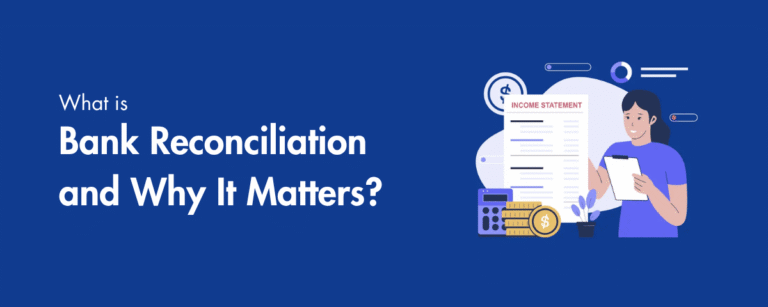An Enrolled Agent stepped in, filed a power of attorney, spoke with the IRS on her behalf, and turned a scary notice into a simple payment plan. You might not need that level of help every day, but when you do, having the right professional by your side changes everything.
At a glance, an Enrolled Agent, often called an EA, is a federally licensed tax professional with the authority to represent you in front of the IRS in audits, collections, and appeals. EAs are licensed by the U.S. Department of the Treasury, not by individual states, so their practice rights travel with you nationwide. They maintain their credential with continuing education and an active PTIN, and they follow the rules in Treasury Department Circular 230.
Table of Contents
- Key Takeaways
- What An Enrolled Agent Is, In Plain English
- Quick Answers For Search Intent
- Key Takeaways, Expanded
- How Enrolled Agents Help You Day To Day
- Becoming An Enrolled Agent, Step By Step
- How EAs Compare To CPAs And Tax Attorneys
- Representation Rights And Practice Before The IRS
- The SEE Exam, Simplified For Planning
- How To Choose The Right EA For You
- Real‑World Example
- FAQs About Enrolled Agents
- Final Thoughts And Next Steps
Key Takeaways
- An Enrolled Agent is licensed at the federal level and has unlimited representation rights before the IRS, covering audits, collections, and appeals.
- You can become an EA by passing all three parts of the Special Enrollment Examination or by qualifying through former IRS service under Circular 230.
- The SEE uses a scaled score from 40 to 130, and you need at least 105 to pass each part. Each part has 100 questions and 3.5 hours of testing time. (prometric.com)
- To stay active, EAs complete 72 hours of continuing education every three years, with at least 16 hours per year and 2 hours of ethics annually, and they renew their PTIN each year.
- Representation is authorized with IRS Form 2848. EA practice does not automatically extend to U.S. Tax Court without separate admission as a nonattorney practitioner.
EAs, CPAs, and attorneys all have unlimited representation rights before the IRS. What sets EAs apart is their singular focus on federal taxation and IRS procedure. (irs.gov)
What An Enrolled Agent Is, In Plain English
An Enrolled Agent is a tax specialist who can speak to the IRS on your behalf, from the first notice to the final resolution. The EA license is national, which means your representative’s authority follows you across state lines. Their work is governed by Treasury Circular 230, the rulebook for practice before the IRS. (irs.gov)
How you earn the badge matters. Most EAs pass the Special Enrollment Examination, a three‑part test that covers individuals, businesses, and representation practices. Others qualify through prior technical experience at the IRS, as outlined in Circular 230 section 10.4, which requires at least five years of qualifying service and meeting strict suitability checks. After passing, applicants file Form 23 and complete a background and tax‑compliance review to be enrolled. (irs.gov)
Once enrolled, you keep the credential active with continuing education and an annual PTIN renewal. The IRS specifies 72 total CE hours every three years, including ethics hours each year, and PTIN renewal typically opens in mid‑October for the upcoming filing season.
Quick Answers For Search Intent
- What is an Enrolled Agent? A federally licensed tax pro with nationwide representation rights before the IRS.
- How hard is the SEE? Each part is 3.5 hours, 100 questions, scaled 40 to 130, pass at 105. You can test each part up to four times per window, from May 1 through the end of February.
- How do I authorize an EA to speak for me? Sign IRS Form 2848, Power of Attorney and Declaration of Representative.
- Do EAs handle Tax Court? Not by default. Nonattorney admission requires passing the U.S. Tax Court’s separate exam. (ustaxcourt.gov)
Key Takeaways, Expanded
- Unlimited representation rights mean an EA can work directly with revenue officers and appeals officers, request transcripts, submit offers, and negotiate on your behalf anywhere in the country. That is different from preparers with limited rights.
- The SEE’s scoring model can be confusing. Your raw score converts to a standardized scale, and only failing scores show a number below 105. Passing reports simply state that you passed, along with topic‑level strengths and weaknesses.
- Renewal is not a one‑time task. Keep an eye on your three‑year CE cycle based on your SSN and renew your PTIN by December 31 each year to avoid lapses.
Tax note and timing: The details above are current as of October 6, 2025. If you are reading this later in the season, check the IRS pages we cite for any updates to fees, windows, or renewal timelines. (irs.gov)
How Enrolled Agents Help You Day To Day
When that IRS envelope shows up, you want someone who can step in quickly, interpret what the letter means, and take the wheel. Here is where an EA shines.
- Handling audits, correspondence exams, and field exams, and explaining what the IRS actually wants from you.
- Speaking with the IRS after you sign Form 2848, which grants your EA the authority to represent you.
- Preparing and signing federal tax returns for individuals and businesses, plus year‑round planning to reduce surprises.
- Working through balances due, payment plans, penalty relief, and offers in compromise when appropriate.
The Rules EAs Follow
Every EA practices under Treasury Circular 230, which sets the bar for competence, diligence, confidentiality, and ethical conduct. Fall short, and you risk censure, suspension, or disbarment from practice. For you, that means your representative is operating under clear standards that protect your interests. (irs.gov)
Credential Maintenance You Can Trust
- CE requirement, 72 hours every three years, including 2 hours of ethics each year, with a minimum of 16 hours annually.
- PTIN renewal is annual, usually open mid‑October through December 31 for the next filing season. The 2025 PTIN fee was $19.75 according to the IRS. EA renewal runs on a three‑year cycle tied to your SSN, with the IRS maintaining windows for each group.
- The EA credential is built for consistency, with required CE and annual PTIN renewal so your representative stays current on federal tax law.
Becoming An Enrolled Agent, Step By Step
If you are considering the EA path, here is the clean version.
- Secure a PTIN. You need this to prepare returns for compensation and to sit for the SEE.
- Pass all three SEE parts within the testing window rules. Each part is 3.5 hours, 100 questions, scaled 40–130, pass at 105. You can attempt each part up to four times per window, and the window runs May 1 through the end of February.
- Apply for enrollment using Form 23 through Pay.gov, complete the suitability check, and wait for approval. As of February 11, 2025, the enrollment fee shown by the IRS was $140.
- Keep the credential active with CE and EA renewal through Form 8554 based on your cycle. (irs.gov)
Former IRS Employees
If you have the right IRS background, you may qualify for enrollment without sitting for the SEE. Circular 230 section 10.4 outlines this path, including at least five years of qualifying IRS technical experience and timing rules for applying after separation. The IRS can also limit enrollment scope based on the work performed. (govregs.com)
How EAs Compare To CPAs And Tax Attorneys
All three can represent taxpayers before the IRS with unlimited rights. The difference is how they are licensed and what they focus on.
- EAs are federally licensed and focused on federal tax and IRS procedure.
- CPAs are state‑licensed and can provide attest services in addition to tax.
- Attorneys are state‑licensed and can provide legal advice and representation, including litigation.
Quick Comparison Table
| Credential | Licensing | Core Focus | IRS Representation | Tax Court | CE Requirement |
| Enrolled Agent | Federal, U.S. Treasury | Federal taxation, IRS procedure | Unlimited practice rights before the IRS | Requires separate nonattorney admission to U.S. Tax Court | 72 hours every 3 years, with annual ethics |
| CPA | State boards of accountancy | Tax, accounting, audits and assurance | Unlimited practice rights before the IRS | Requires separate admission to Tax Court unless attorney | Varies by state |
| Attorney | State bar | Legal counsel and litigation | Unlimited practice rights before the IRS | Yes, admitted as attorney | Varies by jurisdiction |
Citations for the table details are drawn from IRS guidance and the U.S. Tax Court practitioner rules. (irs.gov)
Representation Rights And Practice Before The IRS
When you authorize an EA with Form 2848, they can talk to the IRS, access your records, and negotiate outcomes within the scope of the power you grant. That includes audits, appeals, and collection matters like installment agreements or penalty relief. These are unlimited representation rights, which the IRS reserves for EAs, CPAs, and attorneys. (irs.gov)
Form 2848, In Real Life
You sign Form 2848, your EA signs the Declaration of Representative, and the IRS records it. From there, the EA can receive copies of IRS notices, request transcripts, and handle discussions so you do not have to sit on hold or explain things twice. If you have multiple tax years or forms involved, each needs to be listed correctly.
What EA Rights Do Not Include
EA status does not automatically grant courtroom privileges. If your case heads to the U.S. Tax Court, your representative must be an attorney admitted to that court or a nonattorney who passed the Tax Court’s own exam and was admitted to the bar of the Court. Many issues resolve before court, but it is good to know the line between administrative representation and litigation. (ustaxcourt.gov)
The SEE Exam, Simplified For Planning
If you are on the path to becoming an EA, set your study plan around what the IRS and Prometric publish, not rumors.
- Format, 100 questions per part, 3.5 hours of testing time, one scheduled 15‑minute break.
- Scoring, scaled 40–130, pass at 105. Passing reports do not show a number, only that you passed, with topic‑level diagnostics.
- Window, testing runs May 1 through the end of February, and you can take each part up to four times per window.
How To Choose The Right EA For You
Not all tax work is the same, and neither are practitioners. Here is a simple due‑diligence checklist.
- Verify active enrollment and an annual PTIN. Use the IRS PTIN and enrolled agent resources.
- Ask about recent continuing education, especially ethics and any specialized topics relevant to your situation.
- Confirm they will sign your return and stand behind the work. For representation, ensure Form 2848 lists the correct years and forms.
- Request examples of similar cases they have handled, like correspondence audits or penalty relief, without asking for confidential details.
Services You Can Expect
- Return preparation and signing for individuals and businesses
- Tax planning and quarterly check‑ins
- IRS representation for audits, appeals, collections, and penalty relief
- Guidance on estimated taxes, withholding, payroll, and basis tracking
If you run a CPA, EA, or accounting firm and need reliable help with back office or seasonal spikes, Accountably offers offshore staffing and back‑office solutions designed for compliance‑heavy workflows. Use it to scale without over‑hiring, then keep your senior EAs focused on client‑facing work. Mentioned here because it directly supports how firms deliver EA services at scale.
Real‑World Example
You receive a CP2000 notice proposing extra tax due. Your EA reviews the income mismatch, pulls transcripts, prepares a clear response, and calls the IRS with your signed Form 2848 to discuss the case. The result, the IRS corrects the mismatch, removes proposed penalties, and sets a small balance on a short payment plan. That is the everyday value of an EA’s representation rights. (irs.gov)
FAQs About Enrolled Agents
What is the purpose of an Enrolled Agent?
An EA protects your interests in front of the IRS, prepares accurate returns, and solves problems like audits, notices, penalties, and collections. They can speak to the IRS for you after you sign Form 2848, which keeps the process organized and less stressful.
What is the difference between a CPA and an Enrolled Agent?
Both can represent you before the IRS. The difference is licensing and scope. EAs are federally licensed and focused on federal tax, while CPAs are state‑licensed and can also offer attest services like audits and reviews. Many people choose based on the exact help they need.
How do Enrolled Agents earn income?
EAs typically charge for return preparation, planning, and representation. Some use project fees or retainers for ongoing advisory work. The key is clear engagement letters that outline scope, deliverables, and deadlines, which keeps expectations clear on both sides.
Is it worth becoming an Enrolled Agent?
If you enjoy tax and want nationwide practice rights without a state license, yes. The SEE is challenging but manageable with a plan, and the credential signals IRS expertise. Many professionals use it to advance inside firms, run remote practices, or add representation to their toolkit.
Can an EA represent me in U.S. Tax Court?
Not automatically. Your EA would need separate admission as a nonattorney after passing the Tax Court’s own exam. Many issues are resolved before litigation, but if your case heads to court, confirm your representative’s admission status.
Final Thoughts And Next Steps
If you are a taxpayer, start by choosing a qualified EA, sign Form 2848 when representation begins, and keep your records tidy. If you are building a practice, keep your CE on schedule, renew your PTIN early, and focus on repeatable processes so client work stays consistent through peak season.
When you compare credentials, consider the type of help you need right now. For IRS notices and year‑round tax planning, an EA can be the calm voice that gets you through the noise. If you are an accounting firm owner who is ready to scale without adding fixed payroll, consider Accountably for offshore staffing and back‑office support that respects U.S. compliance standards. Used thoughtfully, it frees your senior team to spend more time on client strategy and high‑stakes representation.
Quick disclaimer, This article is for general education on October 6, 2025. It is not legal or tax advice. Always confirm current IRS requirements, fees, and deadlines directly with the IRS pages we cited.








